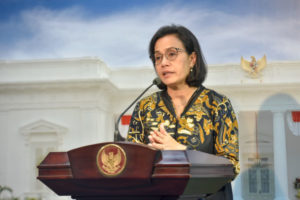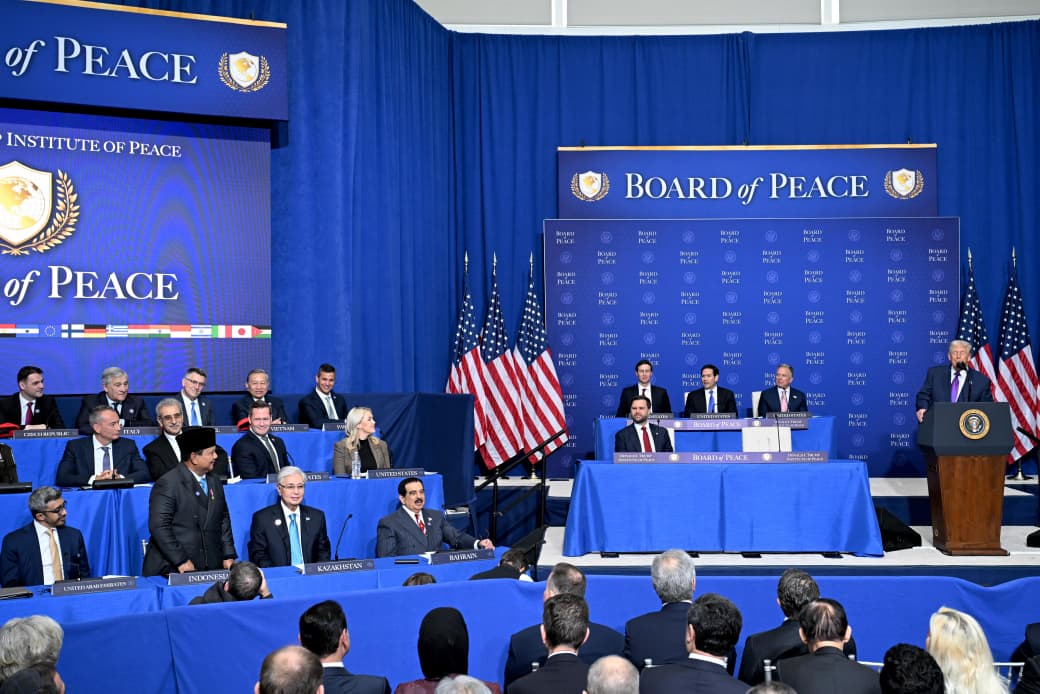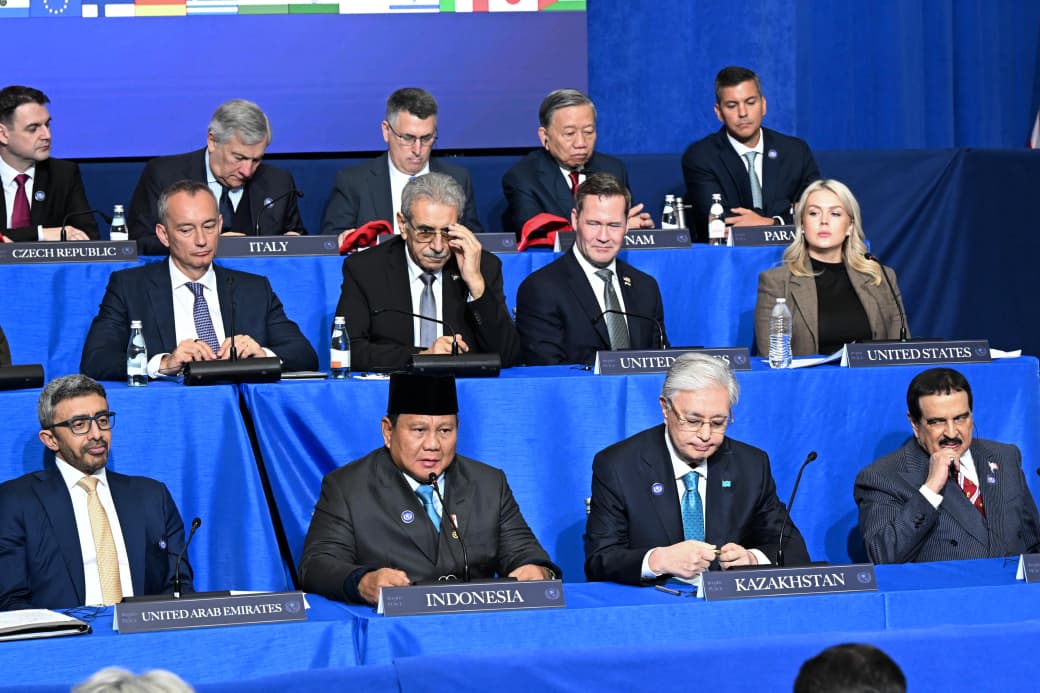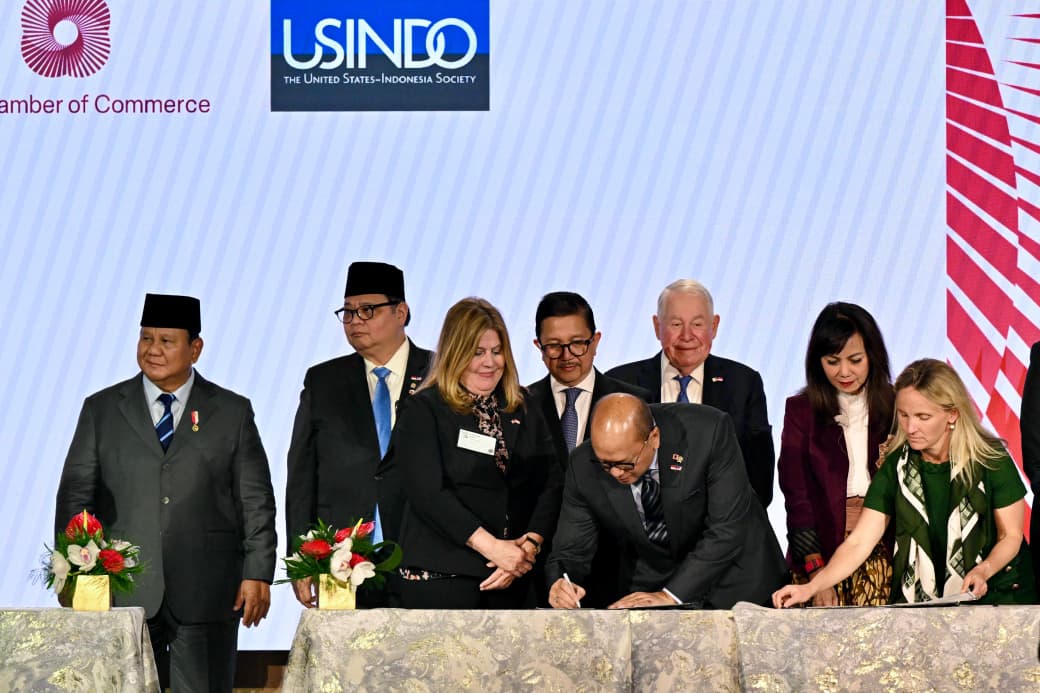Sri Mulyani: Indonesia’s Financial System Stability Remains Normal in Q3-2021

Minister of Finance Sri Mulyani (Photo: Cabinet Secretariat)
Minister of Finance Sri Mulyani has announced that stability of the country’s financial system in the third quarter of 2021 is in a normal condition thanks to a significant decline in the number of COVID-19 cases.
“The global economy continues to recover against the backdrop of the risk of a new wave of COVID-19. There also remains a risk in the global supply disruption,” Sri Mulyani said in a statement with the Governor of Bank Indonesia (BI) Perry Warjiyo, Chairperson of the Board of Commissioners of the Financial Services Authority (OJK) Wimboh Santoso, and Chairperson of the Board of Commissioners of the Deposit Insurance Corporation (LPS) Purbaya Yudhi Sadewa, Wednesday (27/10).
On that occasion, Ministry of Finance, central bank Bank of Indonesia, the OJK, and the LPS agreed on a joint commitment to strengthen synergy of the four institutions in maintaining and supporting the momentum of economic recovery, as well as in maintaining financial system stability.
Sri Mulyani also said that the emergence of delta variants and other mutations of the coronavirus posed the biggest risk factor amid the imbalance in vaccine distribution around the world.
On the other hand, she added, global supply disruption, which turned out to be longer than expected, led to an increase in energy prices due to limited supply that started to trigger inflation in a number of countries.
The Minister also noted that inflation in the United States was in the range of 5.4 percent in the last four months. According to her, this is considered very high for the size of the US economy. On the other hand, she continued, the European Union also saw a similar trend where inflation in September 2021 reached 3.4 percent.
“The problem of longer supply disruptions and the high uncertainty regarding the development of COVID-19, which is now increasing in various parts of the world especially in four-seasons countries, have prompted the Organization for Economic Co-operation and Development (OECD) and the International Monetary Fund (IMF) to lower their projections for global economic growth in 2021,” she explained.
For the record, the OECD lowered its projection for global economic growth from 5.8 percent in May to 5.7 percent, while, the IMF has revised its projection for the global economy from 6.0 percent in July to 5.9 percent.
However, despite the challenging world conditions, Sri Mulyani underscored that Indonesia’s economic recovery will continue, underpinned by the country’s successful handling of the pandemic.
This positive development, she added, has encouraged the easing of public activity restrictions, allowing economic activities to gradually resume.
“Recovery in economic activities can be seen from several indicators until September 2021 that show an improvement trend, including the purchasing managers’ index which has returned to the expansion zone at the level of 52.2. We are also seeing indicators that experienced an improvement, namely population mobility, public spending index, motor vehicle sales, cement sales, and electricity consumption in the industrial and business sectors. Meanwhile, the inflation rate remains under control at the level of 1.6 percent year on year,” explained the Minister.
From the external side, the former World Bank managing director said that the trade balance surplus was still occurring.
According to her, until September 2021, the trade balance surplus reached US$4.37 billion for September and cumulatively from January to September the trade balance surplus reached US$25.07 billion, adding that that the position of Indonesia’s foreign exchange reserves was at US$146.87 billion, equivalent to 8.9 months of imports of goods and services.
“This very positive development cannot be separated from efforts as well as policy coordination between the Government together with the Bank of Indonesia, the OJK and the LPS, in continuing to maintaining financial system stability and in accelerating national economic recovery,” Sri explained. (PR Ministry of Finance / UN) (EST / EP)







